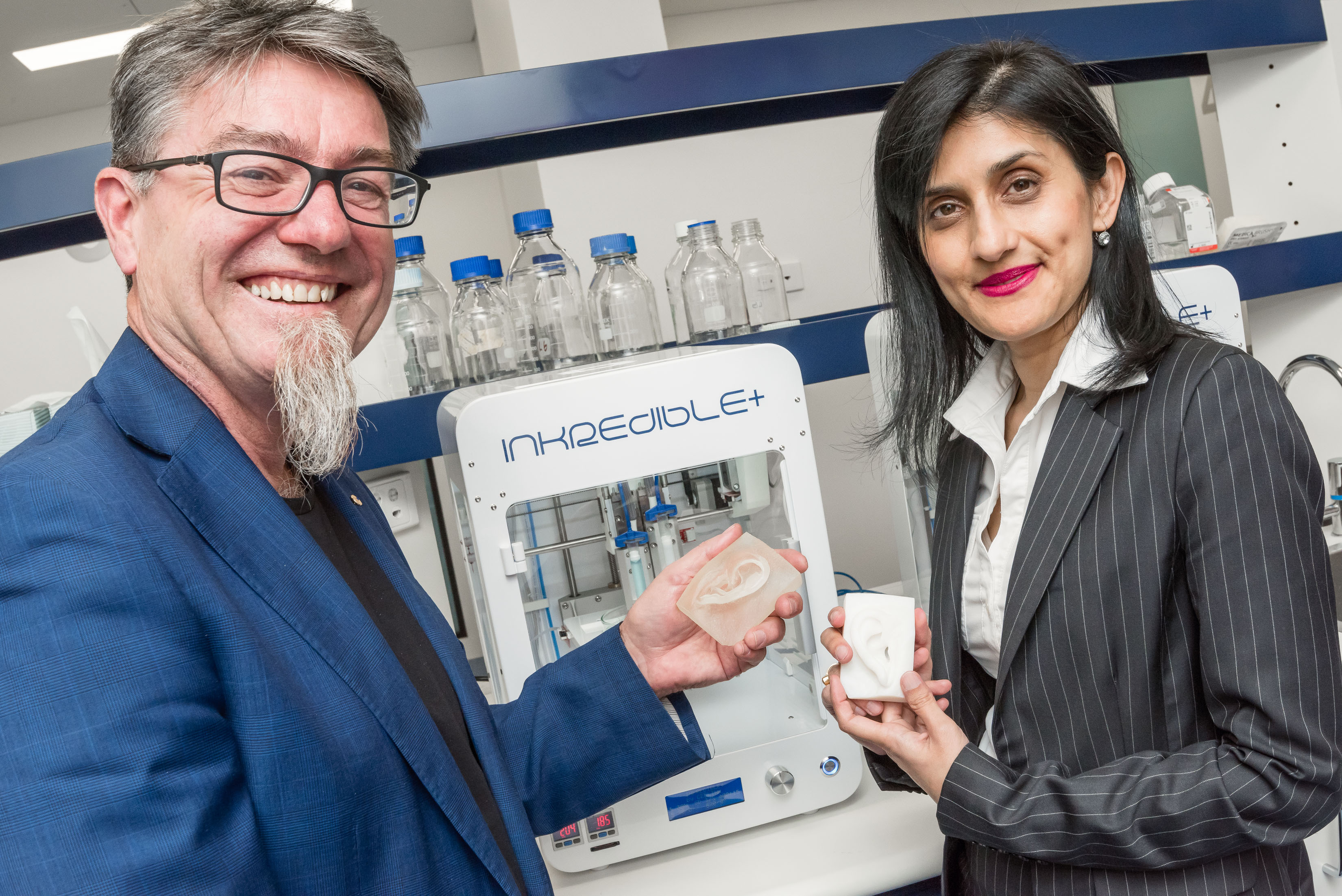News
3D printing bone tissue
Jun 28 2022
A highly successful workshop on 3D bioprinting was hosted by our colleagues at the Andhra Pradesh Medtech Zone (AMTZ) in Vizag, India on September 8. Orchestrated by Ear, Nose and Throat Surgeon A/Prof Payal Mukherjee (Royal Prince Alfred Hospital (RPAH), Sydney) and colleagues in India, the event attracted researchers and clinicians from a number of cities across the country.

The most recent advances in 3D printing for medical applications were discussed, as was the need for innovative deployment programs and engagement with regulators to ensure widespread access to these emerging technologies.
On September 10, we were joined in Vizag by University of Wollongong (UOW) representatives to sign a memorandum of understanding (MOU) with AMTZ to lay the framework for progressing our collaborative efforts in both research and research training. Taking part in the signing ceremony were UOW Vice Chancellor Prof Paul Wellings, UOW Executive Director (Global) Brett Lovegrove, UOW Director Government Relations Canio Ferrevanti and the University’s Global Brand Ambassador, the legendary Adam Gilchrist.
My thoughts on this truly extraordinary event…
Only rarely do planets align to enable something special to occur. In Vizag, we had the opportunity to formally recognise the alignment of complementary facilities and expertise in India (at AMTZ) and Australia (at UOW). But more importantly, we are recognising the alignment of a vision and determination to take fundamental advances made in research into deployable medical technologies that are beneficial to the communities that we work for.
Our initial research activities will include the development of innovative scanning and 3D printing technologies to fabricate personalised prosthetic ears for patients with microtia (a congenital deformity of the ear) – a project wherein the clinical aspects are led by A/Prof Payal Mukherjee.
In parallel, we will be developing innovative deployment programs to ensure widespread accessibility, in both India and Australia, to the technologies developed.
In these programs, we will bring together clinicians, researchers, manufacturers, regulators and the business community to create a platform that will ensure future developments from our collaborative research are fast-tracked.
We will work together with AMTZ to continue to develop online and on-site training courses to ensure that the next generation of researchers are equipped with the skills needed to build on this platform.
Thank you Vice Chancellor, Adam and colleagues from AMTZ for making this event possible. Thank you to all here who worked behind the scenes to make today possible. You have all been a part of something very special. You have helped the planets align.
Knowing the rarity of such an occurrence I can assure you that we as researchers, developers and deployers of technology will make the most of it. We are passionate and determined to ensure fundamental discoveries are translated into real applications to the benefit of both India and Australia.
Following on from these events in India more good news! We were recently informed that our new partnership with the University of Sydney, Deakin University and our advanced medical technology collaborators in India was selected as one of 11 successful projects across Australia to receive funding from the Federal Government’s Australia-India Council (AIC).
With this AIC funding we will build new innovative linkages and provide sustainable collaborations between Australia and India – building further onto our plans from this most recent visit.
The partnership will see our ARC Centre of Excellence for Electromaterials Science (ACES) researchers work with both A/Prof Mukherjee (RPAH and University of Sydney) and Prof Svetha Venkatesh (Deakin University) to progress 3D printing, 3D bioprinting of artificial intelligence in areas of relevance to India and Australia.
Both India and Australia have challenges, but together we will continue to build our collaborative programs in research and research training to make a positive impact and enable change that will be beneficial for our communities.
I look forward to the months ahead as we build our collaborative programs in research and research training.
This article was originally posted on LinkedIn by Prof Gordon Wallace













